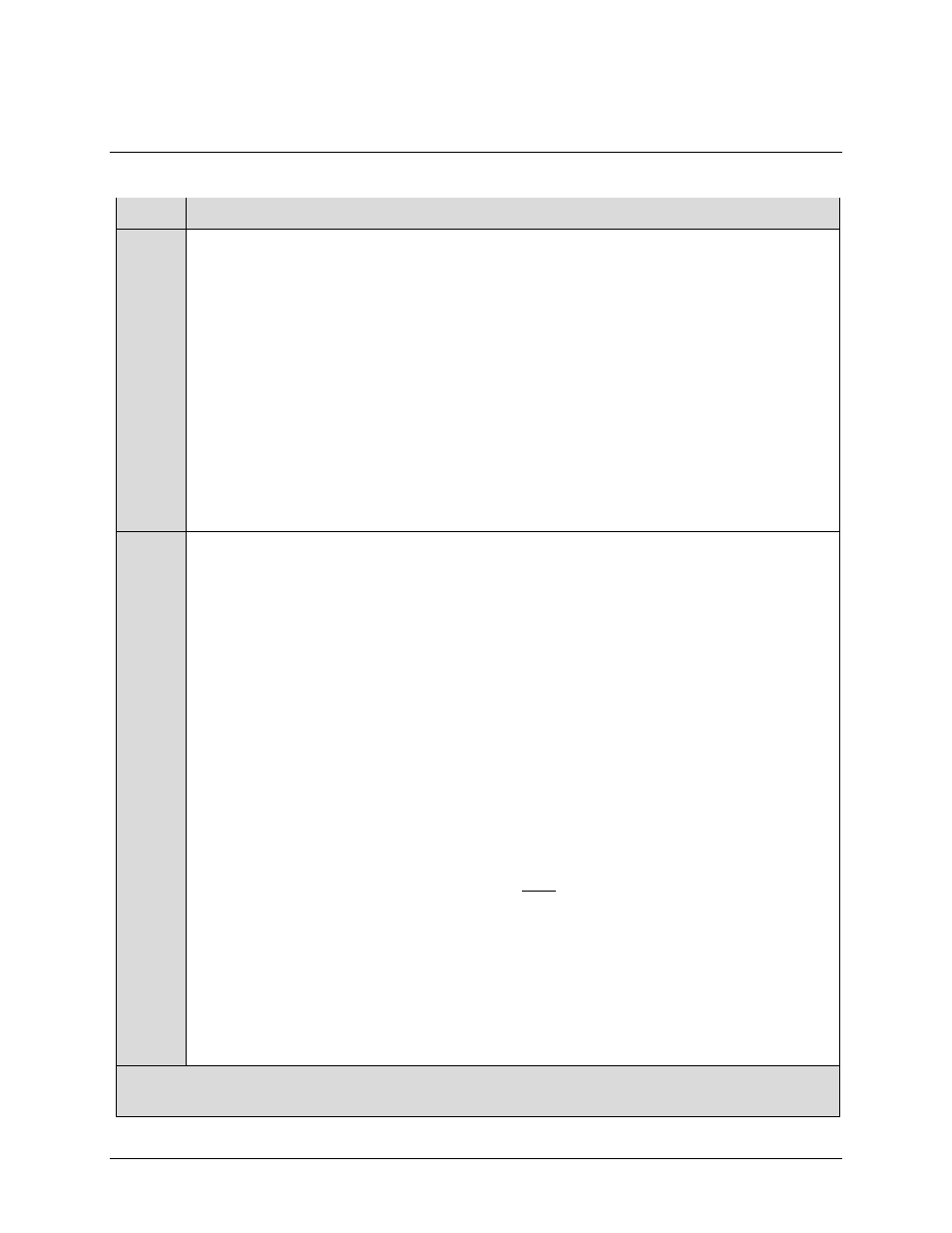Comtech EF Data DT-4500-A Series User Manual
Page 64

DT-4500-A Series Downconverters
Revision 1
Updating Firmware
MN-DT4500A
4–2
4.2 Getting Started: Preparing for the Firmware Download
Step Task
1
Identify the firmware number and version for download.
Using the unit front panel, the current unit M&C version can be viewed at the top-level
menu of the front panel display (press the [CLR] key several times to view). The firmware
information can also be found within the UTILITY FIRMWARE INFO IMAGE#1 or
IMAGE#2 menu branches. For more information, see Chapter 5. FRONT PANEL
OPERATION.
Using the 45xxA Web Server Interface, the firmware information can be found on the
CONFIG | UTILITY page. For more information, see Chapter 6. ETHERNET-BASED REMOTE
PRODUCT MANAGEMENT.
Using serial remote control, the firmware revision levels may be obtained with the
<1/FRM? query. For more information, see Appendix A. REMOTE CONTROL.
2
Create a temporary folder (directory) on an external PC:
• For Windows Explorer: Select File > New > Folder to create a new folder, then rename
it from “New Folder” to "temp" or another convenient, unused name. Assuming
"temp" works, a "c:\temp" folder should now be created.
Note: The drive letter c: is used in this example. Any valid writable drive letter can
be used.
• For Windows Command-line: Click [Start] on the Windows taskbar, then click the
“Run...” icon (or, depending on Windows OS versions prior to Windows 95, click the
“MS-DOS Prompt” icon from the Main Menu). Then, to open a Command-line
window…
o For Windows 95 or Windows 98 – Type “command”.
o For any Windows OS versions later
than Windows 98 – Type “cmd” or
“command”.
o Alternately, from [Start], select All Programs > Accessories > Command Prompt.
At the Command-line prompt (c:\>), type “mkdir temp” or “md temp” (without quotes –
mkdir and md stand for make directory). This is the same as creating a new folder from
Windows Explorer. There should now be a "c:\temp" subdirectory created (where c: is the
drive letter used in this example).
There should now be a "temp" folder created and available for placement of the firmware file
download.
